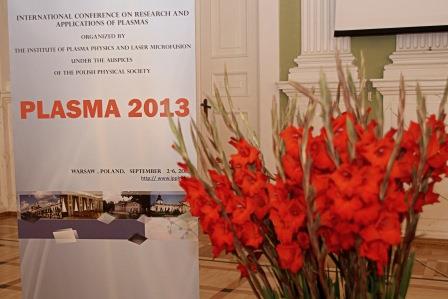
The PLASMA conferences have been organized since 1993 mainly in Poland. In 2007 the conference took place in Germany and in 2010 – in France. The main goal of the next PLASMA conferences is to create a scientific forum for detailed discussion and evaluation of progress in research of plasma physics and plasma technology as well as thermonuclear fusion. The majority of presented works is performed in the framework of the international cooperation, most frequently covered by the European programmes. The conference has been considered an important international scientific event of exceptional importance for scientific communities in Eastern and Western Europe. It facilitates the meetings of young scientists with experienced researchers from renowned centres in Poland and abroad.
Let us provide the reader with some statistics. The total number of participants (including 11 IPPLM scientists) amounted to 131 persons from 24 countries. The invited lectures were presented by 18 distinguished researchers and oral presentations (2 of them by IPPLM scientists - P. Gąsior and M. Kubkowska) were delivered by 24 participants. Moreover, 90 posters (10 from IPPLM) were put on display and discussed. The conference participants took part in a trip to Wilanów Palace, which was built for the Polish king Jan III Sobieski in the last quarter of the 17th century, and enjoyed it immensely.
The research and implementation of plasma in different branches of science and technology are being intensively developed around the world. An important goal of hot plasma research is to harness the controlled thermonuclear fusion for the future production of safe and applicable energy for people and the environment. Low-temperature plasma finds various technological applications, among others in electronics, space technology and modification of material characteristics.
Several research centres in Poland deal with plasma and thermonuclear research within close international collaboration. Those include: Institute of Plasma Physics and Laser Microfusion, National Centre for Nuclear Research, PAS Institute of Nuclear Physics, PAS Space Research Centre, PAS Institute of Fluid-Flow Machinery, Opole University and several other scientific communities in other universities and institutes. IPPLM coordinates works regarding thermonuclear fusion in tokamaks and stellarators in the framework of the Association EURATOM-IPPLM and laser fusion within the European HiPER project.


















































































